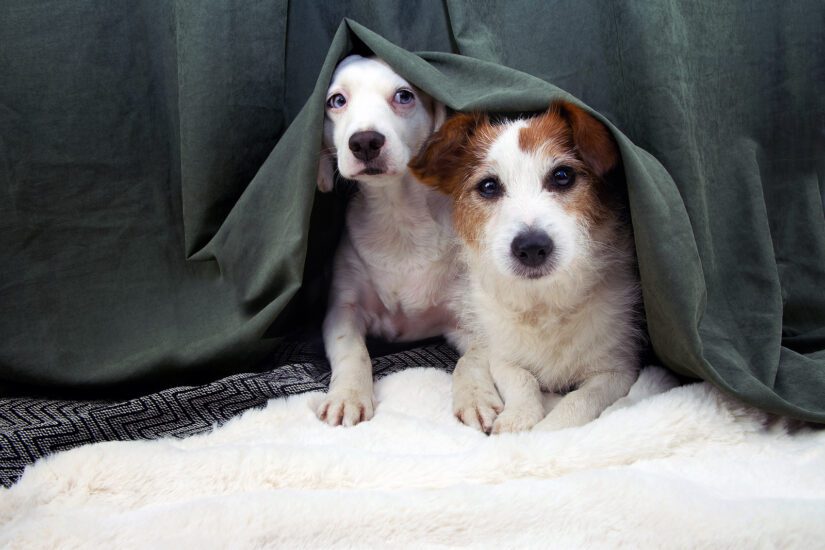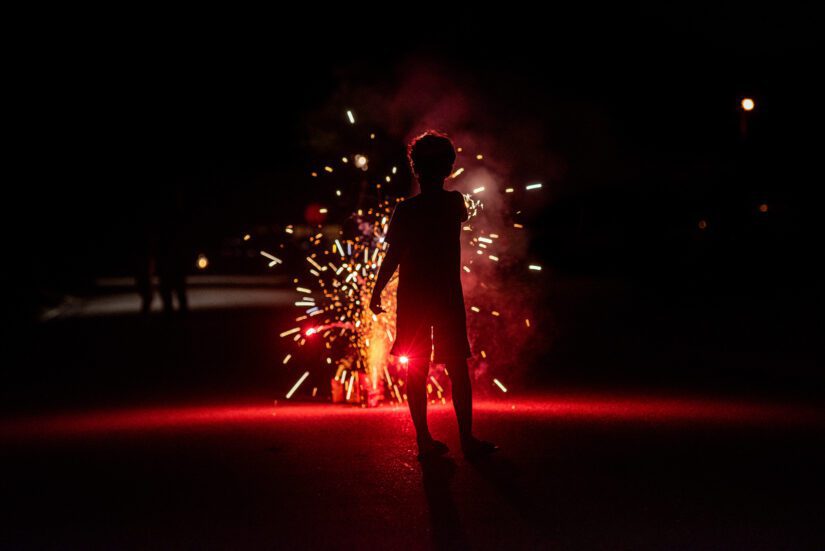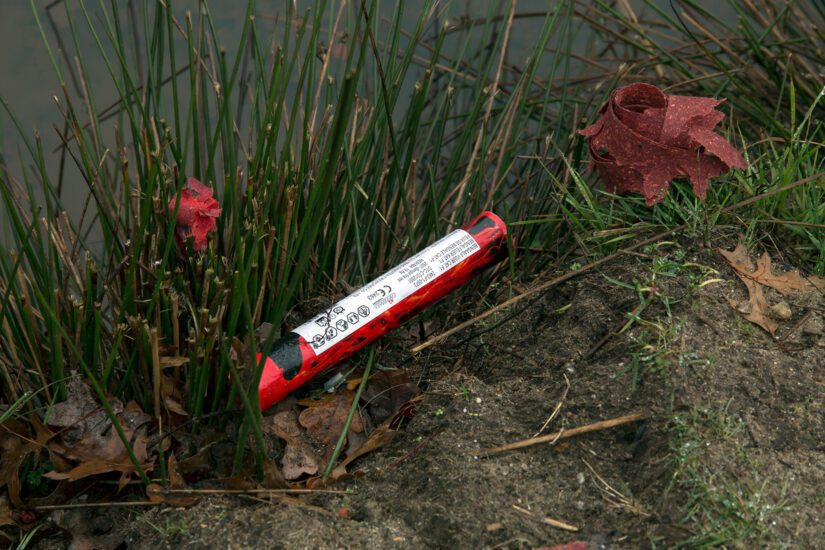The BC SPCA has long spoken out about the dangers of fireworks. Though they can seem like harmless entertainment, they actually have far-reaching and long-lasting impacts on animals, people and the environment.

Risks to pets and farm animals
The noise from exploding fireworks can be terrifying. Panicked pets can bust through door screens or even windows to run away. Frightened cows and horses can easily trample through fences. Animals are often seriously injured in their attempts to escape, including lacerations, sprains and broken limbs. Reports of lost pets increase during and after fireworks displays.
Roughly 49 per cent of dogs are fearful of loud noises such as fireworks. When frightened, dogs who are normally friendly can sometimes act out of character. This places members of the public, including children, at risk of being bitten.
Wildlife are at risk, too
Fireworks also frighten, disorient and disturb wild animals. When scared from dens and roosting sites, wildlife can run into busy streets or fly into buildings. This often has fatal results. Fireworks can also interrupt their natural feeding and breeding behaviours and even cause them to abandon their young.
When accidentally ingested, the debris from exploded fireworks can cause life-threatening illness. Animals can be poisoned by the chemicals or suffer from gastrointestinal obstruction.
Fireworks endanger people
People are unintentionally hurt by fireworks every year. Teenagers are most commonly injured, and males are more likely to be injured than females. Burns and eye injuries are most frequently reported.
Fireworks have also been known to cause serious and even fatal structure fires on private property and in the warehouses where they’re manufactured.
Fireworks can be a significant stressor for people living with PTSD, including veterans and survivors and witnesses of gun violence. The loud, unexpected noise can serve as a reminder of combat experiences or gunfire and trigger traumatic memories. It can also be overwhelming for those with sensory sensitivities, including people with autism.

Environmental harms
What goes up must come down! When fireworks explode, they release harmful chemicals such as perchlorate and heavy metals like lead, which can linger in the air and contaminate the soil and water. This, of course, can endanger human and animal health. Some of these chemicals are carcinogenic, or can disrupt hormones or interfere with organ functioning.
Fireworks also release polluting gases such as nitrogen dioxide and sulphur dioxide, as well as particulate matter (a mixture of solid particles and liquid droplets). This can drastically reduce air quality, causing irritation of the airways, coughing or difficulty breathing. It can also aggravate pre-existing respiratory conditions such as asthma. People with heart or lung diseases, children and older adults are most likely to be affected by exposure to particulate matter.
Wildfires
With climate change increasing both the likelihood of wildfires and the length of the wildfire season, fireworks place unnecessary pressure on forests. When conditions are extremely hot and dry, as they have been in recent summers, sparks and falling embers can more easily ignite trees, shrubs and other vegetation. The slightest breeze can then carry that fire far and wide to threaten other communities.

Fireworks campaign
Fireworks are currently regulated by a patchwork approach in provinces and municipalities, which unfortunately has not been effective at addressing the hazards discussed above.
In October 2021, the BC SPCA supported a petition calling on the federal government to make legislative changes to protect animals, people and the environment from fireworks. The petition closed on February 25, 2022 with more than 14,000 signatures from concerned Canadians, 11,629 of which were from B.C.
Ultimately, the federal government chose not to take action. However, the BC SPCA remains committed to protecting animals from harmful fireworks.
What you can do about fireworks
Holidays like Halloween, New Year’s Eve and Canada Day are often associated with fireworks. However, given the risks they pose, perhaps it’s time to consider breaking with tradition.
- Don’t set off fireworks, and encourage your friends and family to avoid them too.
- Your neighbours might not be aware of the stress they cause your pets or farm animals when they set off fireworks. Talk to them to see if they’d be willing to forego fireworks in favour of a less frightening way to celebrate. Otherwise, consider printing this poster asking them to give you advance notice around the holidays.
- Make sure your pets are kept indoors on nights with fireworks and have up-to-date identification, including a collar with a tag and an ear tattoo or a microchip, just in case they go missing.
- Find out whether your municipality has a fireworks bylaw and advise bylaw services if you believe that misuse is occurring. Often misuse happens when people set off fireworks in the weeks leading up to a holiday despite a bylaw prohibiting this.
